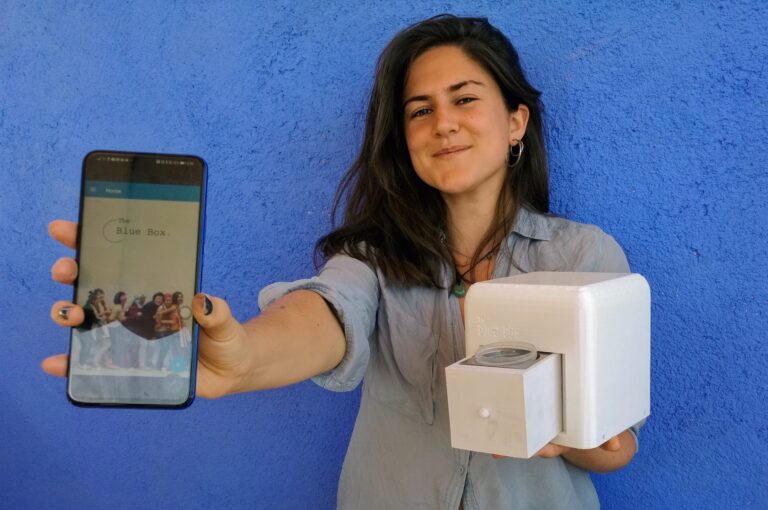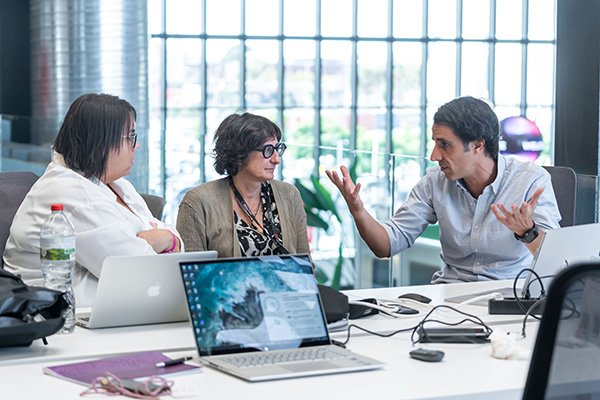The Blue Box, a biomedical device for breast cancer testing

blogboxcast
5 de November de 2021
The Blue Box is a biomedical device for home breast cancer testing in a non-invasive, non-irradiating, economical, specific and easy-to-use way… Simply by introducing a urine sample into a box!
Engineered from a dog’s olfactory system, The Blue Box is an AI-powered medical device in development intended for home breast cancer testing in a non-invasive, non-irradiating and inexpensive way, from a urine sample. In its latest studies, a precision of 95% (n = 90) was achieved when discriminating between women for test control and metastatic breast cancer.
The Blue Box can be used repeatedly and unlimitedly by many users in one household. Thanks to the user assistance app, all women can get comfortably screened at their home and as often as desired. All is needed is to follow 3 easy steps and hit “GO” on the app. Then, in just 30 seconds, the data is automatically sent to the cloud, where its AI-based algorithm runs. When a diagnosis is reached, it is sent back to the user’s phone, where it is displayed through the app.
The Blue Box was created to overcome the need for better healthcare for women around the world, because we believe in preventing rather than curing.
The first prototype of The Blue Box was developed by Judit Giró during her Bachelor’s thesis in Biomedical Engineering at the University of Barcelona in 2018.
In 2019, Po-An (Billy) Chen joined the team. A second prototype was then developed as a master’s thesis for the Master of Integrated Cyber-Physical Systems at the University of California at Irvine. The classification rate was found to be> 90%
Judit and Billy are currently working on the project and will soon begin conducting human studies to improve and better test the performance of The Blue Box. “We hope to be able to bring our product to the market in the next few years,” says Judit Giró.
The next goal of this start-up is to adapt it to the EARLY STAGE of breast cancer: In a new study, they have analyzed the urine of more than 60 women (without cancer or in the EARLY STAGE of breast cancer) and obtained their “fingerprint olfactory”. This data will be used to train and test its classification accuracy. The study is organized by the Irvine University of California and is collecting urine samples at the Joan XXIII University Hospital in Tarragona and at the Sant Joan de Reus University Hospital.



